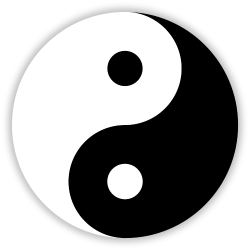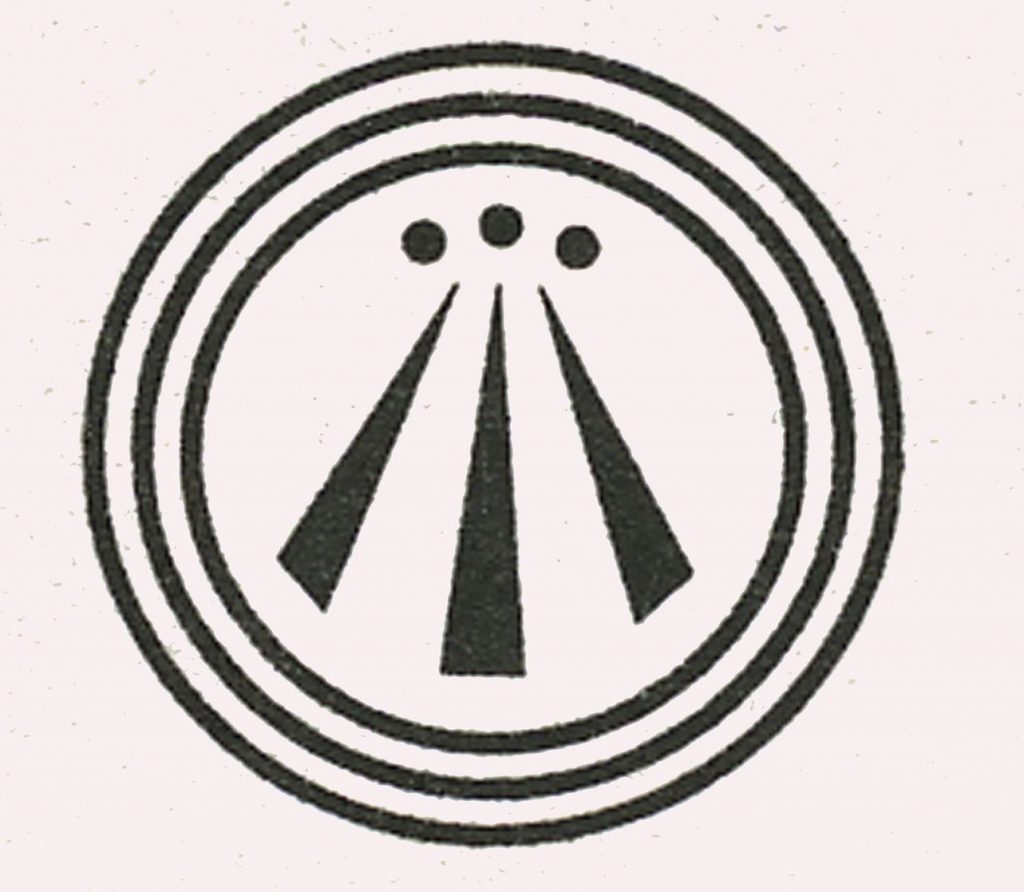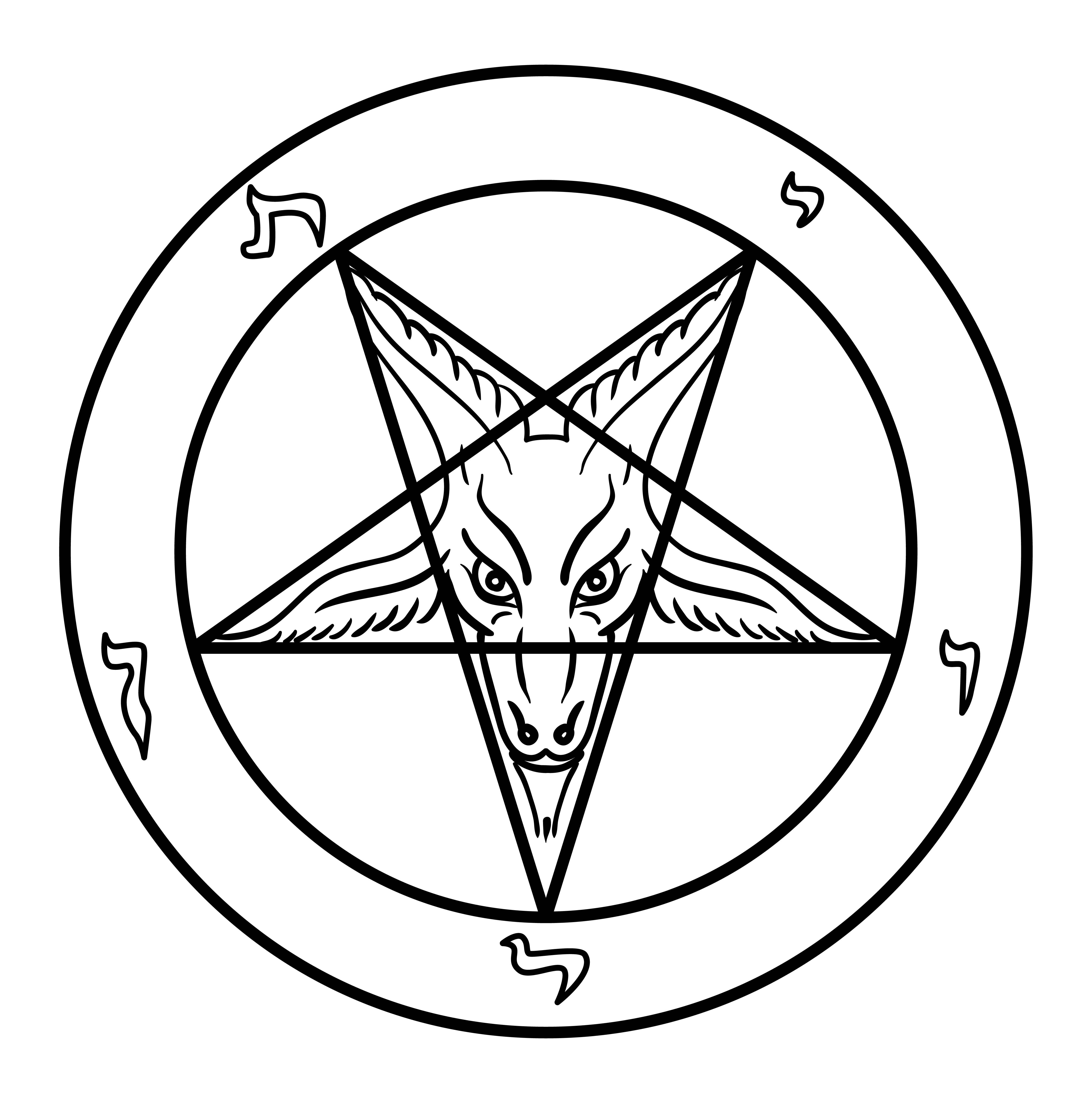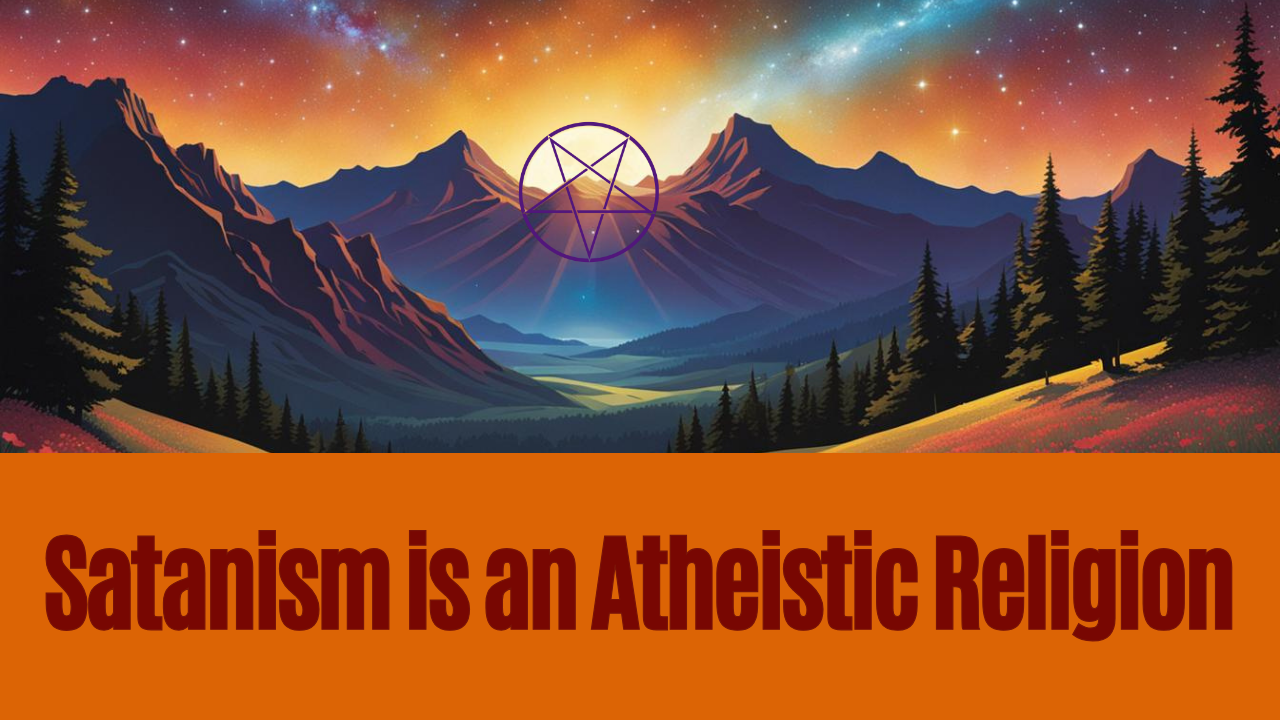To grasp Satanism as an atheistic religion, we must first acknowledge that not all non-belief signifies a void. Atheism simply denotes the absence of deities, not a lack of meaning or ethical frameworks. Indeed, a vibrant array of non-theistic religions thrive worldwide, offering valuable perspectives on life and purpose independently of any divine entities.

Atheism Defined:
Atheism, often described as a singular stance, can be more accurately understood as a concise response to a specific question: “Do you believe in the existence of any deities?” An affirmative answer denotes theism, while a negative reply identifies the individual as atheist. Essentially, atheism offers a definitive answer to a specific query without encompassing an individual’s entire belief system or lifestyle.
Beyond Theism: Examining Non-Theistic Religiosity
The concept of religion traditionally conjures images of established faiths centered around deities or the divine. However, a burgeoning category of non-theistic belief systems challenges this definition. These systems, eschewing belief in gods, frequently prioritize philosophies, ethical principles, and community rituals to guide adherents’ understanding of existence, morality, and life’s purpose. While not aiming to provide definitive answers to existential quandaries, such systems offer solace, purpose, and ethical frameworks, fostering a sense of belonging and direction.
Examples of Non-Theistic Religions

Humanism: This philosophy centers on human values and experiences, emphasizing critical thinking, reason, and compassion. Humanists strive to create a just and ethical society for all, drawing inspiration from art, literature, and scientific inquiry.

Buddhism: Though sometimes classified as a theistic religion due to its concept of deities, Theravada Buddhism emphasizes personal responsibility and achieving enlightenment through the Four Noble Truths and the Eightfold Path. Deities, in this context, act as role models or guides rather than ultimate creators.

Taoism: Rooted in ancient Chinese philosophy, Taoism values living in harmony with nature and the natural flow of the universe (Tao). It emphasizes balance, non-violence, and self-cultivation through practices like meditation and mindful living.

Confucianism: This ethical and philosophical system originated in China and focuses on social harmony, filial piety, and personal responsibility within a structured social order. While not traditionally considered religious, its emphasis on rituals and self-improvement overlaps with aspects of religion.

Druidism: This nature-based spiritual tradition originated in Europe and centers on reverence for the natural world. Druids seek to understand and live in harmony with the cycles of nature, emphasizing wisdom, community, and environmental stewardship.

Unitarian Universalism: This liberal-religious movement affirms the inherent worth of every person and promotes intellectual freedom and personal growth. Unitarians and Universalists draw inspiration from diverse religious and philosophical traditions, emphasizing social justice, ethical living, and a search for meaning beyond theistic frameworks.
These are just a glimpse into the rich tapestry of non-theistic religions. Each system offers unique perspectives and practices, providing individuals with opportunities to find meaning, purpose, and ethical frameworks without relying on belief in deities or supernatural forces.
Satanism: An Unconventional Atheistic Path

Satanism, often shrouded in misinterpretations, emerges as a unique non-theistic belief system. Contrary to popular portrayals, Satanists neither subscribe to the existence of a literal devil nor engage in supernatural worship. Instead, they utilize the figure of Satan as a potent symbol for key tenets: individualism, self-reliance, and personal autonomy. Satanists find empowerment in independent thought and personal responsibility, eschewing dependence on deities or supernatural forces.
In essence, while its name evokes the infernal, Satanism, devoid of belief in gods or fantastical powers, advocates for self-empowerment and personal agency. Thus, it qualifies as an atheistic religion, highlighting the existence of meaningful, non-deistic belief systems that can offer purpose and ethical frameworks.

Darth Grumps
Grumps is the name most folks recognize him by on TikTok, Discord, and various other corners of the internet. He’s the one writing and talking about how Satanism weaves into the everyday grind, working to clear up the usual misconceptions people have about the religion. Through his own unique lens, he offers insights and a slice of Satanic wisdom that only he can provide.
Disclaimer: Grumps and the Church of Satan? Yeah, he’s a Satanist, but he’s not a card-carrying member, nor does he represent them. Grumps’ grumpiness? It’s more about irony than anything else. Just a heads up, the first Satanic Rule of the Earth says, “Do not give opinions or advice unless you are asked.” But hey, you came here to read this, so technically, you asked for it!


